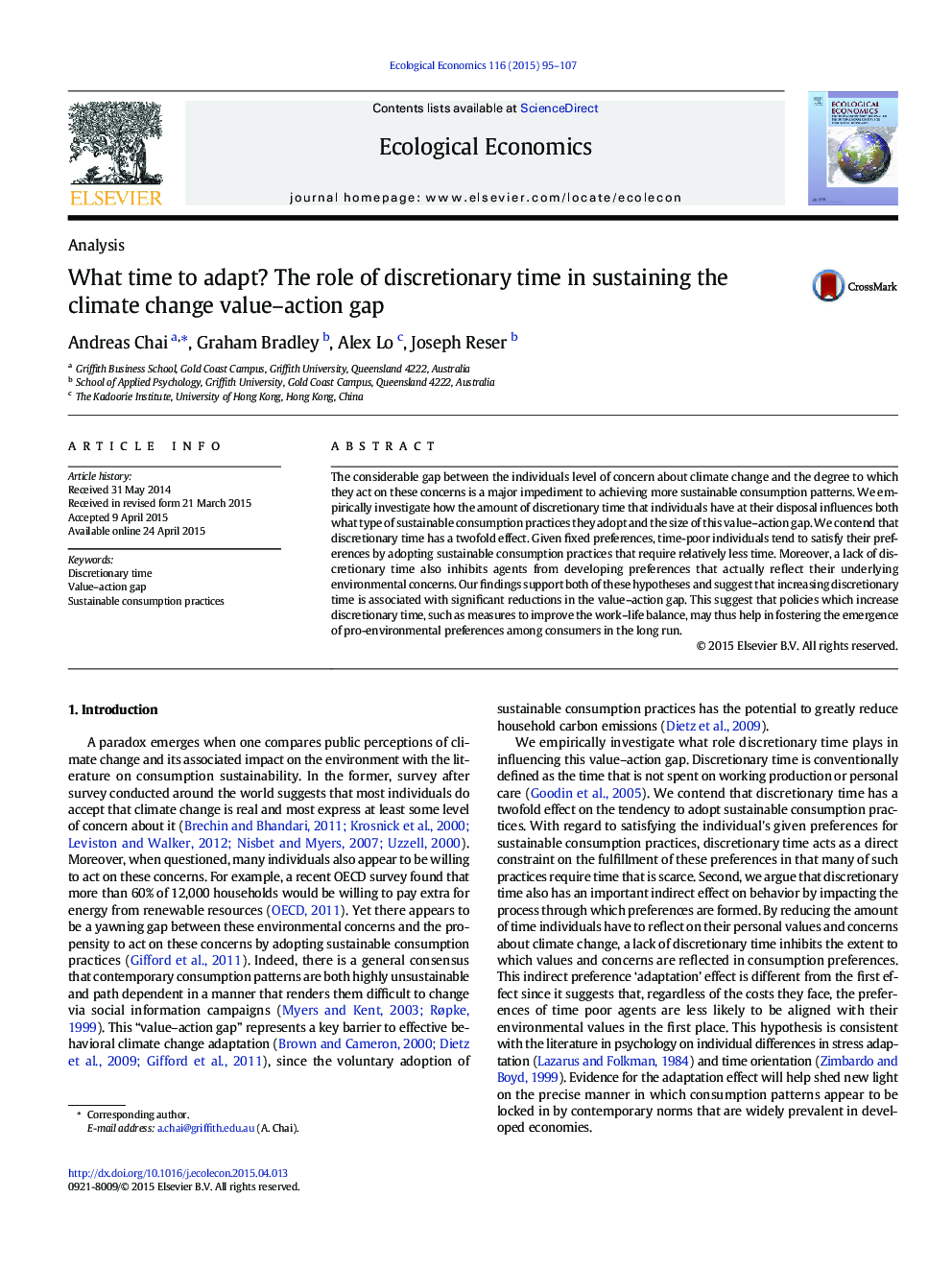| کد مقاله | کد نشریه | سال انتشار | مقاله انگلیسی | نسخه تمام متن |
|---|---|---|---|---|
| 5049432 | 1476363 | 2015 | 13 صفحه PDF | دانلود رایگان |
- Studies how the discretionary time available to consumers affects their value-action gap and the adoption of sustainable consumption practices.
- We argue discretionary time constrains the satisfaction of preferences and also inhibits the formation of pro-environmental preferences.
- Time poor individuals are found to adopt less sustainable consumption practices and prefer those practices which require relatively less time.
- We also find that discretionary time is negatively correlated with the size of the value-action gap.
- Results suggest that enhancing discretionary time can foster the emergence of pro-environmental preferences by reducing the value-action gap.
The considerable gap between the individuals level of concern about climate change and the degree to which they act on these concerns is a major impediment to achieving more sustainable consumption patterns. We empirically investigate how the amount of discretionary time that individuals have at their disposal influences both what type of sustainable consumption practices they adopt and the size of this value-action gap. We contend that discretionary time has a twofold effect. Given fixed preferences, time-poor individuals tend to satisfy their preferences by adopting sustainable consumption practices that require relatively less time. Moreover, a lack of discretionary time also inhibits agents from developing preferences that actually reflect their underlying environmental concerns. Our findings support both of these hypotheses and suggest that increasing discretionary time is associated with significant reductions in the value-action gap. This suggest that policies which increase discretionary time, such as measures to improve the work-life balance, may thus help in fostering the emergence of pro-environmental preferences among consumers in the long run.
Journal: Ecological Economics - Volume 116, August 2015, Pages 95-107
